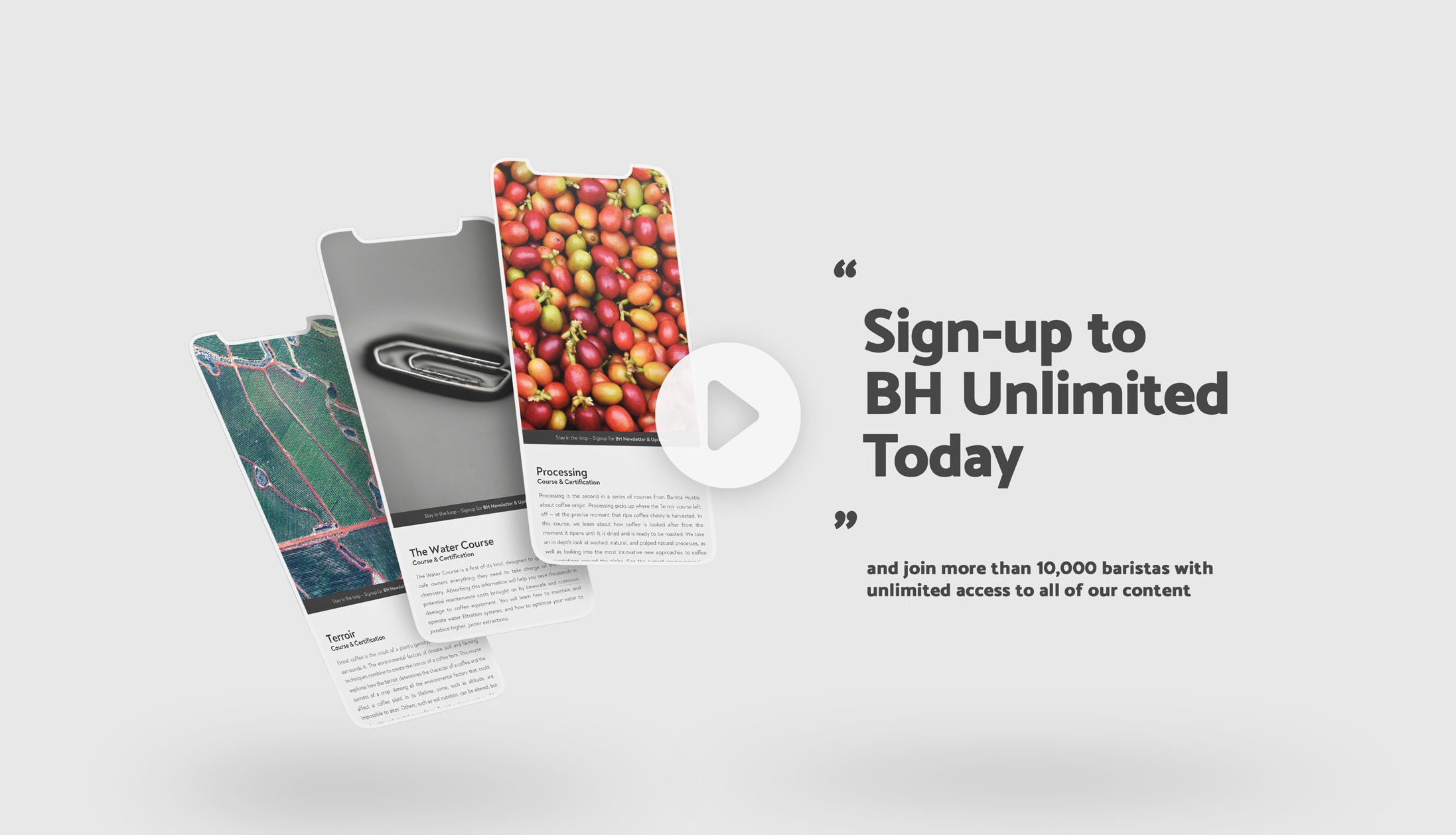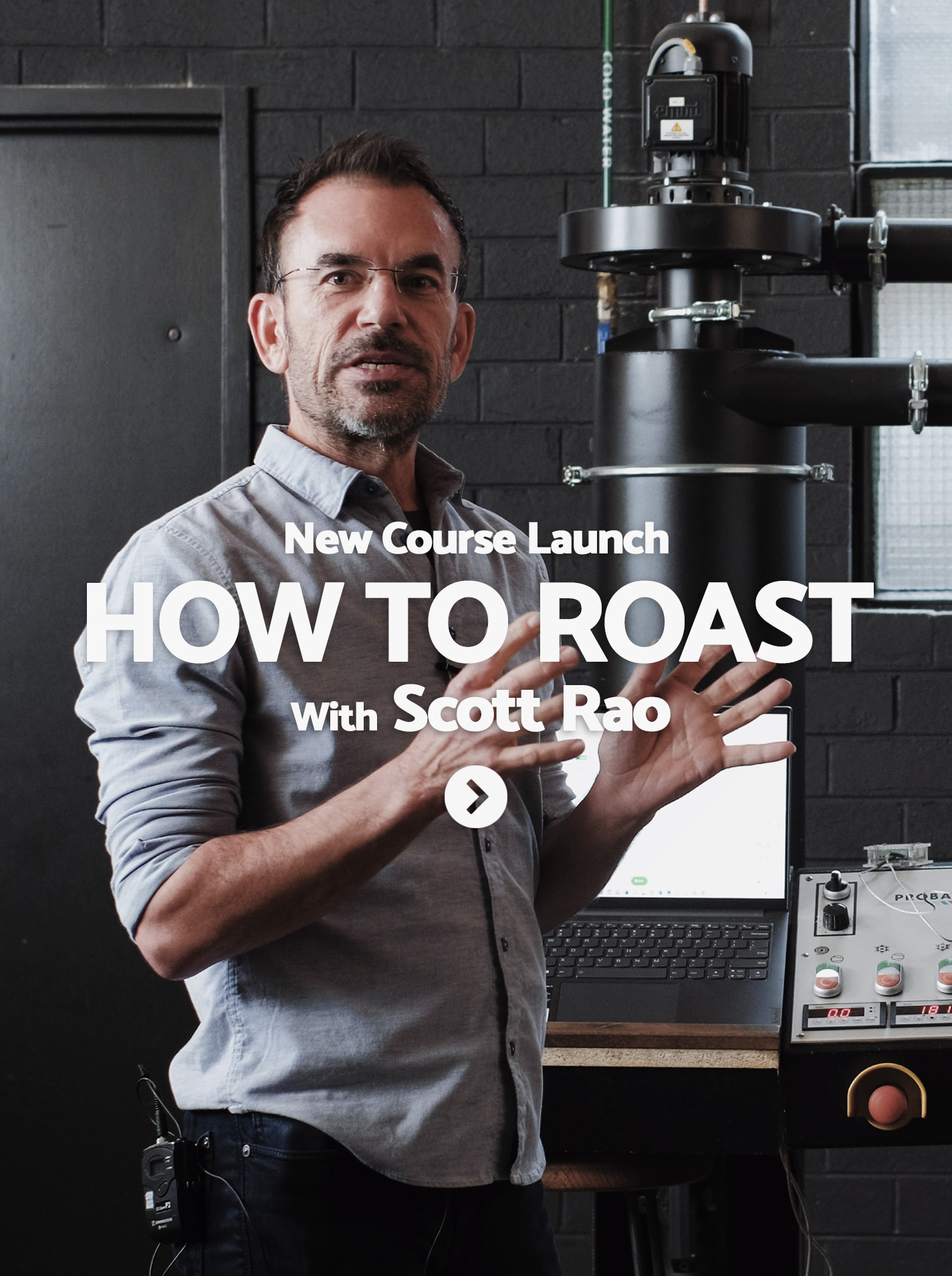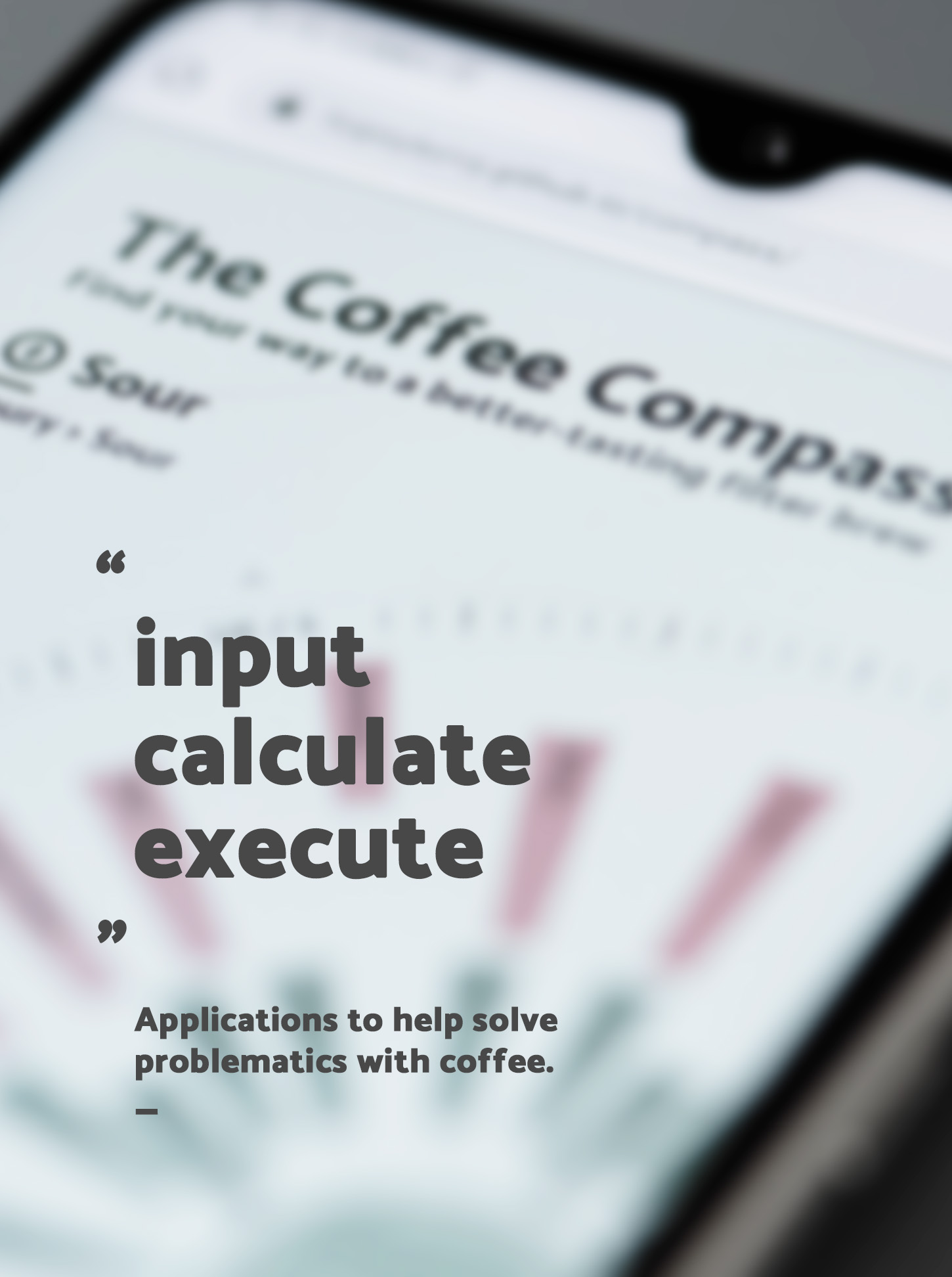Image via The Weekend Edition.
What follows is a phone interview between 2014 World Barista Champion, Hidenori Izaki, and Coffee Hustle’s editor, Alex Bernson.
This version has been streamlined slightly for the web, but the full discussion is available for your listening pleasure on Soundcloud.
Alex Bernson: As I told you I think the first time we met, I really liked your World’s routine because I thought it had a lot of very nice service flourishes to it and so I was thinking you’d be a great person to talk to about what service means as a barista.
I want to start at the top: what does the idea of service mean to you?
Hidenori Izaki: It’s very fundamental for me, it is something that makes customers really happy. Makes customers smile and happy, it’s like trying to make the customer think coffee is worth much more than what they usually think.
Let’s say if you go to a cafe, with very good quality, but very poor service. I think you would be disappointed. But there’s a cafe that serves so-so coffee, but their service is great. Which cafe would you like to go to?
The one that treats me nice.
That’s exactly it. Service is like that. In the specialty coffee industry, it’s great, a lot of people are focusing on quality and knowledge and experience, but I felt a lot of poor service, during my visits to places everywhere in the world.
From the usual customer’s point of view, people want to go to the cafe that treats you really nice.
So I want to go in a bit of a different direction — I think we have a pretty good idea of what service in general means to you, but obviously you’re a competitive barista, what does service mean to you in the context of competition? What does service mean on the world stage?
For me, in the world stage, it’s kind of like ultimate service. It’s only four people, who are supposed to be the best customers in the world.
It’s a tricky one — a lot of people are saying that service in the competition is totally different from service that you usually give customers.
For me there are similarities between competition and daily work.
We are making coffee for 500 cups per day, but overall, we are making a coffee to a customer. Times 500 people. For me, it’s very similar.
So if it’s very similar, I’m curious, you’ve done a lot of coaching work too on competitions. How do you practice service? How does it play a role in shaping the routine?
It’s all about the attention to detail. The mentality is like, how can we serve the best service to the judges in the world stage, it’s really really important for me to pay attention to all the details, like what you wear, how you serve the coffee, maybe you place the cup more gently.
Service is all about making customers really comfortable. And making customers really smart. The same thing that happens in the competition. I always say….you need to always pay attention to how people look at you, how you make coffee, even if you are in front of the machine, you need to be very aware of being watched
I couldn’t agree more. That’s so important. The guests are always watching, they take the cue from you I feel like, so it’s your opportunity to set the expectation and set the moment.
Exactly. If you go to the restaurant, it’s the same things happening I think. You look at the waiter, how you serve the dishes. How they look at you as well.
Alright I think I understand how service is sort of the backbone of your idea of competition. I want to talk a bit more about service in shops now, as you said, for 500 people. What service style does Maruyama coffee use? If someone walks in the door what happens?
We need to know what a customer wants to do in our shop, and first of all, we can ask. What would you like to do? May I help you? Something like that.
When the baristas are figuring out the demand of the customer, if they are not saying anything specific we try and figure out the atmosphere of you know, what do they want to do?
We think a step ahead.
So you guys do full service — when someone comes in looking for a coffee, is it brought to them at a table, what does that look like?
It’s totally the same as a restaurant, a full-service restaurant. We are guiding the customers to the seat, the baristas come up and explain about the coffee, because we’ve got a lot of coffee. Normally we have like 20 single-origin coffees.
That’s something I wanted to ask you about. How do you communicate about your coffee offerings? I know that Maruyama is known for all sorts of lots of coffee — there’s a lot of conversation about striking a balance between education and approachability and not wanting to hit your customers over the head with information, but how do you communicate about such a deep offering?
Well it’s a very difficult part. You know, it’s like the coffee professional are using very difficult terms for the customer usually. Usually the customer doesn’t understand why a coffee tasted, let’s say, floral, or fruity, or like white grape.
First of all we need to translate those difficult words to the words that the customer is really familiar with.
For me, it’s always, during the conversation I’m trying to ask customers, what kind of coffee would you like? Some customer says, “I like very heavy coffee” and then I’m going to use that term that the customer is really familiar with.
Or maybe there’s a customer who says they like fruity coffee — maybe they’re a customer who understands something about the value of Specialty Coffee.
Most customers don’t understand what Specialty Coffee means, and they are afraid of making a mistake.
So how do you make them comfortable to make mistakes or to be okay with ordering?
For me, I’m always avoiding the difficult professional terms, I’m translating those terms to very easy words. My policy for service is to make the customers happy, smile and comfortable.
It makes customers want to come back to me for that, and that’s the most important thing for me.
Service is also like building up a relationship between the customer. It’s like a human relationship.
How do you train for that kind of thing? How do you train your cafe workers, with this complex set of coffees, and you’re trying to translate for customers?
The training I always give is all about acting between the barista and me — I think it’s the fastest way to educate baristas how to give service.
Service is not something that you can describe really well. Service is also very different for each individual cafe. For each individual customer. You need to transform the form of the service for each individual customer.
We are always setting up role-play with the baristas, and I strongly recommend it, it’s really efficient. It’s a really easy way to let baristas know what kind of service policy you would take in your cafe.
For me, it’s really important for this industry to know about how to do service. Look at industries like restaurants, or like a nice tailor — they know how to do service for very nice customers. So for recognising baristas as professional work, I think it’s very important for us to know about the importance of service.
A question on that — I’ve written a fair amount recently about this fast food style of service, though I’m certainly not the first to write about it, and then you say you’re doing more of a full service restaurant-style thing. Do you have thoughts on why more places don’t do that full service?
First of all, I don’t blame the fast food style of coffee shop service — of course we can create amazing service by fast food coffee service, and let’s get back to that.
But first, it costs a lot, you need more people. It’s really difficult to hire a lot of people to work in a cafe, especially if you’re like a startup, because the coffee itself, the profit, and the volume is low.
Also, you require a lot of space. You need to setup tables, etc.
And then there’s invisible investments like education as well.
And even having someone to do the teaching who understands service.
Exactly. The customers’ expectations are naturally increasing, as people get more familiar with coffee.
I want to get back to what you said about their being good service in the fast food model — which I totally agree with, but I just think it’s a lot harder — so how do you see the potentials to give good service in that model?
There’s a very good example in a cafe in Tokyo called Sarutahiko Coffee, they are really lovely people.
What I really like there is not just about the coffee, but also about their service. Their cafe in Ebisu is very tiny compared to US cafes, and they are making great success with the fast-food style. Every day you go, it’s full of people.
It’s all customer service, it’s amazing. They are making an atmosphere that’s not too formal and not too casual, a balance. I think that’s one way for the fast food coffee service to make success.
The advantage of the fast food cafe style is the distance between the customer and yourself, body contact is much closer. You can basically keep talking, from the paying to the waiting for the drinks, talking to the baristas. That flow gives you a much closer contact to the customer.
Interesting, that’s a good way to think about it, because I think a lot of people, and especially some of the things I’ve written, focus on the customer side of it and how there are some nice things about having a little bit of distance from the staff, but there can be great things about being all up in it together, it’s as you said, creating that energy of not too formal, not too relaxed in a space.
What I realize about the reason Sarutahiko is making great success is because they are very much paying attention for the duration of when the customer is waiting for a cup of coffee. They are treating customers really really nice — you know it’s kind of like a painful time, killing it, waiting for a cup of coffee.
Yeah! It’s awkward, and you don’t have coffee yet!
Yeah, exactly. Usually, if you got to a fast food coffee shop, maybe you talk to the customer, but not a lot. But [Sarutahiko] is using the time very efficiently. I think that is one of the key elements of the fast food coffee shop to give amazing service. You can use that time to make customers happy, smile, and make the fun of your cafe.
I like how you said that about talking them through that awkward time. It made me think of, how related are service and coffee really? What I mean is, I don’t think Sarutahiko is talking to guests about coffee that entire time, they’re talking about how their day is going, what they’re in town for, what’s going on in their life. So is service about product, or what else can it be about?
Service for the coffee shop is all about making a cup of coffee more valuable, more than everything.
Obviously, there are specialty coffee shops are making amazing coffee, because they focus on the quality, the techniques, the knowledge, but for me, from my point of view, a lot of cafes are wasting those opportunities.
Even though they are using amazing coffee! But the customers get away from your cafe because of the service. For me, service is like the gateway.
A lot of cafes are talking directly about the coffee, only about the coffee, but they are not hearing the customers’ conversation, what the customer thinks.
It’s just like masturbation. “I’m using this coffee because it’s very lightly roasted and it’s like white grape…”
I’m gonna agree with you Hide. Scandalous, we’re going to post this on the internet and people are going to be unhappy or something. I mean, I don’t think a lot of this is new stuff, but it’s good to hear it from such a balanced perspective.
I wanted to ask you about your perspective, with all your travels, you spending a year all over the globe, were there things that really surprised you in other places?
In Seattle, maybe there’s a lot of people saying what the hell is Hide saying, but actually the Starbucks reserve.
I’m not talking about the quality of the coffee, but I was kinda impressed. First of all, it was very Disneyland, and a lot of people have been paying attention for all the equipment they have, saying that’s amazing, but what I noticed, the service they gave, I was so impressed.
When you get into the roastery, there’s two baristas waiting for you, and when I’m looking around the shop, baristas are coming up saying “how can I help you, let me explain how things work” and stuff.
There’s always someone there to guide you. I saw the philosophy of Starbucks: don’t make customers humiliated, or shamed.
I was pretending to be a tourist, asking a lot of questions, because I’m always curious about service. And they are treating me really nice, and without making me ashamed. I was impressed.
Even though I’m a coffee professional, so I can judge whether the quality is good or not, even though, they made their coffee taste better than it is.
Well, you enjoyed your time. You learned something.
Exactly! When I left the Starbucks I was like “maybe I’ll come back tomorrow” and that’s the feeling, that’s the essential thing for service I think.
If the specialty coffee shops can be aware of the importance of service, they can produce a lot of opportunities to let people know about the value of specialty coffee. We want a lot of people to know how beautiful specialty coffee is.
Service is a gate, to let customers into your world. First of all I’m trying to make customers love me! So that the customer comes back to me again. Because they want coffee from me. So that customer can talk and understand about the coffee — they’re getting familiar with who you are.
People are getting ready for the true stories, what really want to tell to that customer. Which is all about the coffee. Where it comes from, what kind of story behind it. So that customer can understand, wow, specialty coffee is beautiful, and something fun.
Service is not only making customers smile, or comfortable, but also, the gateway to know about the beauty of specialty coffee. It’s a tool to tell customers what you really want to say.
If you enjoyed reading this and want to enjoy delicious coffee with the rest of the community – register for our monthly Superlatives coffee subscription. Or if you just want to keep up with every thing Barista Hustle – sign up to the Newsletter.





0 Comments